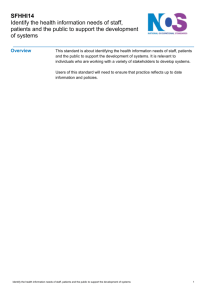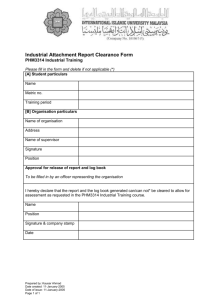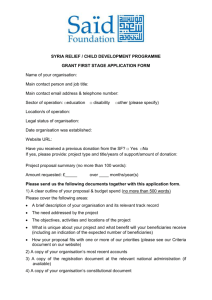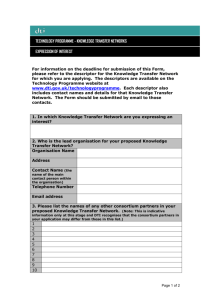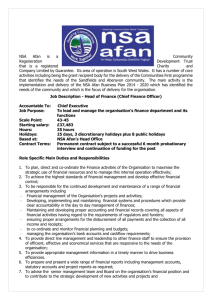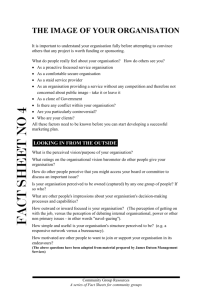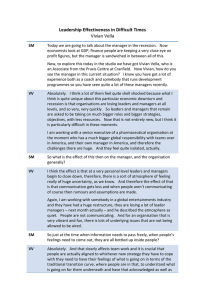forward planning - Community Accountancy National Network
advertisement
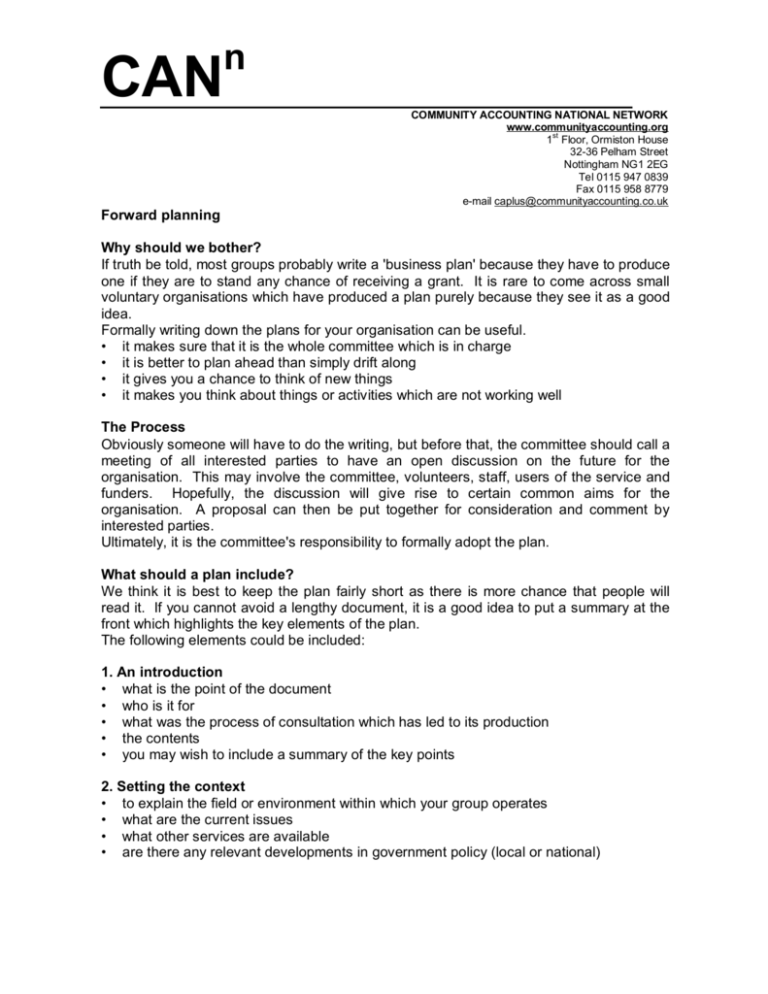
n CAN COMMUNITY ACCOUNTING NATIONAL NETWORK www.communityaccounting.org st 1 Floor, Ormiston House 32-36 Pelham Street Nottingham NG1 2EG Tel 0115 947 0839 Fax 0115 958 8779 e-mail caplus@communityaccounting.co.uk Forward planning Why should we bother? If truth be told, most groups probably write a 'business plan' because they have to produce one if they are to stand any chance of receiving a grant. It is rare to come across small voluntary organisations which have produced a plan purely because they see it as a good idea. Formally writing down the plans for your organisation can be useful. • it makes sure that it is the whole committee which is in charge • it is better to plan ahead than simply drift along • it gives you a chance to think of new things • it makes you think about things or activities which are not working well The Process Obviously someone will have to do the writing, but before that, the committee should call a meeting of all interested parties to have an open discussion on the future for the organisation. This may involve the committee, volunteers, staff, users of the service and funders. Hopefully, the discussion will give rise to certain common aims for the organisation. A proposal can then be put together for consideration and comment by interested parties. Ultimately, it is the committee's responsibility to formally adopt the plan. What should a plan include? We think it is best to keep the plan fairly short as there is more chance that people will read it. If you cannot avoid a lengthy document, it is a good idea to put a summary at the front which highlights the key elements of the plan. The following elements could be included: 1. An introduction • what is the point of the document • who is it for • what was the process of consultation which has led to its production • the contents • you may wish to include a summary of the key points 2. Setting the context • to explain the field or environment within which your group operates • what are the current issues • what other services are available • are there any relevant developments in government policy (local or national) 3. Your Organisation today (where are we now?) • a very brief history • an outline of the work you do • how is your Organisation structured - staff, committee, volunteers • what are your strengths, weaknesses, opportunities and threats • what is your current financial position - reserves, current income and expenditure 4. The Need • an analysis of the need for your services, both existing and those not being met 5. The Long term goals (where are we going?) • what services will you be providing • how will you provide them (what resources will you need by way of people, offices etc.) • this obviously relates to the time span for the plan which may be 3 years or perhaps even 5. 6. The Short term goals (how will we get there?) • what precise steps must be taken over the next 12 months • which are the most important • who will do it • when 7. Finance • budgets should be produced for the next 3 years, or whatever the time span is • more detailed for the next 12 months 8. Monitoring and review • explain how your committee will know whether the plan is being followed • it makes sense to review the whole thing every year A rolling plan An obvious problem with any plan is that it is rather difficult to predict the future. This is a particular problem for organisations which rely heavily on grant aid. No matter how hard you work, much of the future is in the hands of the funders. It is quite likely, therefore, that any plan will be 'out of date' quite quickly. One way to deal with this is to develop a 'rolling plan'. Your organisation may conduct an annual review of the plan and rewrite the whole thing every year - ie., write a 3 year plan every year. This obviously involves more work, but will help to avoid a gap developing between the plans and the reality. Have a go.. Some might say that because of the uncertainty over funding, there is no point in planning ahead. We would suggest that it does provide a focus for activity and ensures that the committee is in control. The absence of any plan will lead to a group simply drifting along or being run to suit the needs of a few people.




